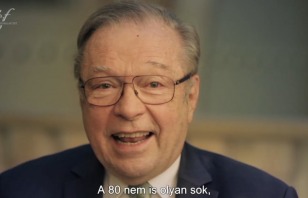“Mephisto is one of the most important films of our day. Where does its resounding power come from? On the one hand, the adaptation of the novel is hugely successful, and on the other hand, the total and absolute commitment towards the relationship between art and authority shown by the actor and the director is clearly evident,” said Ingmar Bergman in a lengthy interview when Szabó visited him during filming of Fanny and Alexander. At the time, Mephisto had just won an Oscar for best foreign film. In Szabó’s oeuvre, the confessional yet more collective historical image of early lyrical films (Álmodozások kora/The Age of Daydreaming, Apa/Father, Szerelmesfilm/Love Film, Tűzoltó utca 25/25 Fireman’s Street) was gradually replaced by an endeavour to position that particular personality desirous of conformity into the spotlight of Central European history instead of the insignificant person suffering the trials and tribulations of history. Bizalom/Confidence was the first such film: it won a Silver Bear in Berlin in 1980 and was nominated for an Oscar in the same year. This ushered in an unprecedented (also in international film history) series where four successive films of a single director in one category made it onto the shortlisted five works battling for an Oscar. The director of Mephisto, Redl ezredes/Colonel Redl and Hanussen (who celebrates his 80th birthday this year) garnered great success with his later films, too (Találkozás Vénusszal/Meeting Venus, A Napfény íze/Sunshine, Szembesítés/Taking Sides, Csodálatos Júlia/Being Julia, Az ajtó/The Door).



.png)







